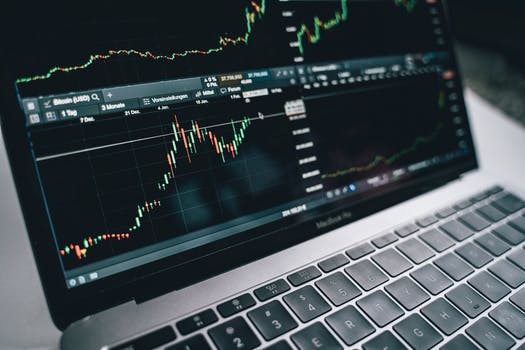
A brief guide to investing in the stock market
If you are considering investing, our brief guide to investing covers the basics of stock market investing. There is a lot to consider but primarily you need to be aware that stock market investing does come with risk, but done well, can provide returns on your investment above the rate of inflation. Very few savings accounts can make that claim. When you invest in the stock market, you buy shares in a company, making you a shareholder and owner of a percentage of the company. When you save money in a savings account, the return on your money or capital is the interest that you earn.
With a stock market investment, your return will consist of dividends and an increase in the share price, also known as equity or capital growth. Dividends are the distribution of the profits of a company to its shareholders. Not all companies pay dividends, choosing to reinvest the profits to grow the company. Share prices can go up or down, which is why you need to approach stock market investing with a long-term view, as this helps mitigate against share price fluctuations.
Before you invest make sure you do this
Make sure you have an emergency savings account that will cover 3 to 6 months of your expenses. You should only invest money that you do not need in a hurry. Investing is a long-term commitment and suddenly finding that you need to sell part of your investment to access cash could result in you losing money. Equally important, get a stocks and shares ISA which allows you to invest £20,000 per year tax-free. Investing through an ISA means that the dividends and capital growth you make on your investments are tax-free. If you invest outside of an ISA, you will likely be subject to dividend and capital gains tax. Additionally, look to invest a regular monthly amount which is termed ‘pound cost averaging’ and make sure you invest so that you have a diversified investment portfolio – more about this later.
Where and what?
In the UK stocks and shares of publicly listed companies are traded on the London Stock Exchange (LSE). There are various asset or investment options available such as shares, bonds, property, investment funds, gold, and commodities. Individuals can trade and invest via online trading platforms for a modest fee, thanks to the deregulation of the stock market in 1986, which opened up electronic trading.
Investments strategies
How you choose to invest will depend in part on your risk appetite and the time you are willing and able to spend researching investment opportunities. Passive or indirect investing is when you opt to invest in stock market funds, which in turn invest in several companies, often across a range of industries, which is a diversified investment. Direct or active investing is when you invest directly in a company, buying some of its shares.
Direct investing
If you have an appetite for direct investing this will require time commitment, as you will need to research and perform an analysis of the companies that you are looking to invest in. This encompasses assessing the current and historical performance of the company, considering their future income and growth expectations, and ultimately deciding whether the share price is fair for their stock.
Indirect or passive investing
There are numerous fund options available for those wanting to invest indirectly. Managed funds are actively managed by a fund manager and tend to have higher fees, of around 1%. Tracker funds and ETFs (Exchange traded funds) are passive funds that track or follow stock market indices and have lower fees of around 0.1%. Stock market indices consist of many stock market listed companies that are used for performance comparison of funds. The FTSE 100, which consists of the biggest 100 companies in the UK, is a renowned index. An investment fund is compared against its benchmark or index to determine how well it has performed; the aim is to beat the benchmark.
Diversification
Having a diversified investment portfolio is essential to mitigate the inherent risk of investing. What does diversification entail? Simply put, it means not having all your eggs in one basket or in investment terms, not investing all your money in one company. If you are investing directly in shares, make sure you invest in a variety of companies, across different industries and geographical regions. When you invest in stock market funds, the funds will already have a level of diversification which you can further enhance by investing in several diverse types of funds.
To improve diversification further, consider a mix of direct and indirect investing and a mix of asset types, including bonds, commodities, and gold. Investment funds often include a mix of shares and bonds. Bonds are loans to companies or governments that pay a fixed rate of interest after a specified period. They are considered less risky than shares, although a company could default in repaying the loan. Gilts or government bonds are considered a safe bet as the UK government has not yet defaulted on a bond.
Pound or dollar cost averaging
Pound or dollar cost averaging is another method to mitigate investment risk by averaging the price you pay for investments. Quite simply, it means drip-feeding your money into the stock market rather than making one or more large purchases. Setting up a direct debit and investing monthly reduces your risk to share price fluctuations. With pound cost averaging some shares are purchased when the share price is high and others when the price is low, averaging out to a mid-range share price.
Investment platforms
There are many investment platforms to choose from online. Look for one that suits your investment strategy and has reasonable fees. Just a small percentage extra in fees can have a massive impact on the long-term value of your investment. You will usually pay a platform fee plus trading transaction fees. If you invest in funds, the funds will have their fees, which are in addition to the platform fees. Fund fees are usually deducted from the funds directly. Platform fees can be paid via a monthly direct debit or deducted from cash balances held within your investment portfolio.
Vanguard offers fund investing and charges a maximum platform fee of £350 per year. Interactive Investor has the additional option to invest in shares directly and investment funds. Platform fees vary and for £24.99 a month, you can have a trading account, an ISA, a SIPP (pension) plus one free trade a month. Both platforms offer stocks and share ISAs.
Compounding your dividends
It would be remiss not to mention the impact of reinvesting the dividends that you earn, as opposed to taking them as cash. Most funds will automatically reinvest the dividends and buy additional shares with the dividend income. This is a notable example of the magic of compounding. For every new share purchased using dividend income, not only do you own more shares but your entitlement to dividends increases too. Each share that you own receives a dividend or share of the company’s profit. This again highlights the importance and benefits of long-term investing.
Return on investment (ROI)
You do need to monitor your investments regularly to ensure they are performing and delivering a decent return. Return on investment is the increase or appreciation of your investment. This is best illustrated by an example:
You buy shares for £250 and earn £5 in dividends during the year. At the end of the year, your shares are worth £275. Your total ROI for the year is:
Investment growth = £275 – £250 = £25, and dividend income is £5. Your total return is the investment growth plus dividend i.e., £25 + £5 = £30. Divide £30 by your initial investment of £250 to calculate your total ROI, which is £30/£250 = 12%.
To calculate the real return, you need to deduct the rate of inflation. If inflation is 5% in this example, the real rate of return is 7%.
MQ’s return on investment calculator
Alternatively, use our ROI calculator to see how well your investments have performed.
Some other investing terms
Bull market: This is a market where share prices are rising.
Bear market: In this market share prices are dropping or are flat.
Robo-advisors or digital wealth management: They will assess your risk appetite and investing goals and recommend suitable investments, generally ETFs (exchange traded funds).



Investing outside an ISA – tax implications
Investing in the stock market outside of an ISA may result in your capital growth and dividends being taxable. There is a tax-free dividend allowance of £500 per annum for the tax year from 2024/25. This means any dividends you receive of £500 or less in the current tax year, aren’t subject to tax. Dividends above the allowance, are taxable at 8.75% for basic rate taxpayers (income up to £50,270). For higher rate taxpayers, this rate increases to 33.75%.
When you sell shares, you may be liable for capital gains tax on any capital growth of the investment. There is currently an annual personal capital gains allowance of £3,000. Capital gains on investment gains above the allowance incur tax at 18% for basic rate taxpayers. This increases to 24% for higher rate taxpayers. You can avoid these taxes by investing using a stocks and shares ISA.